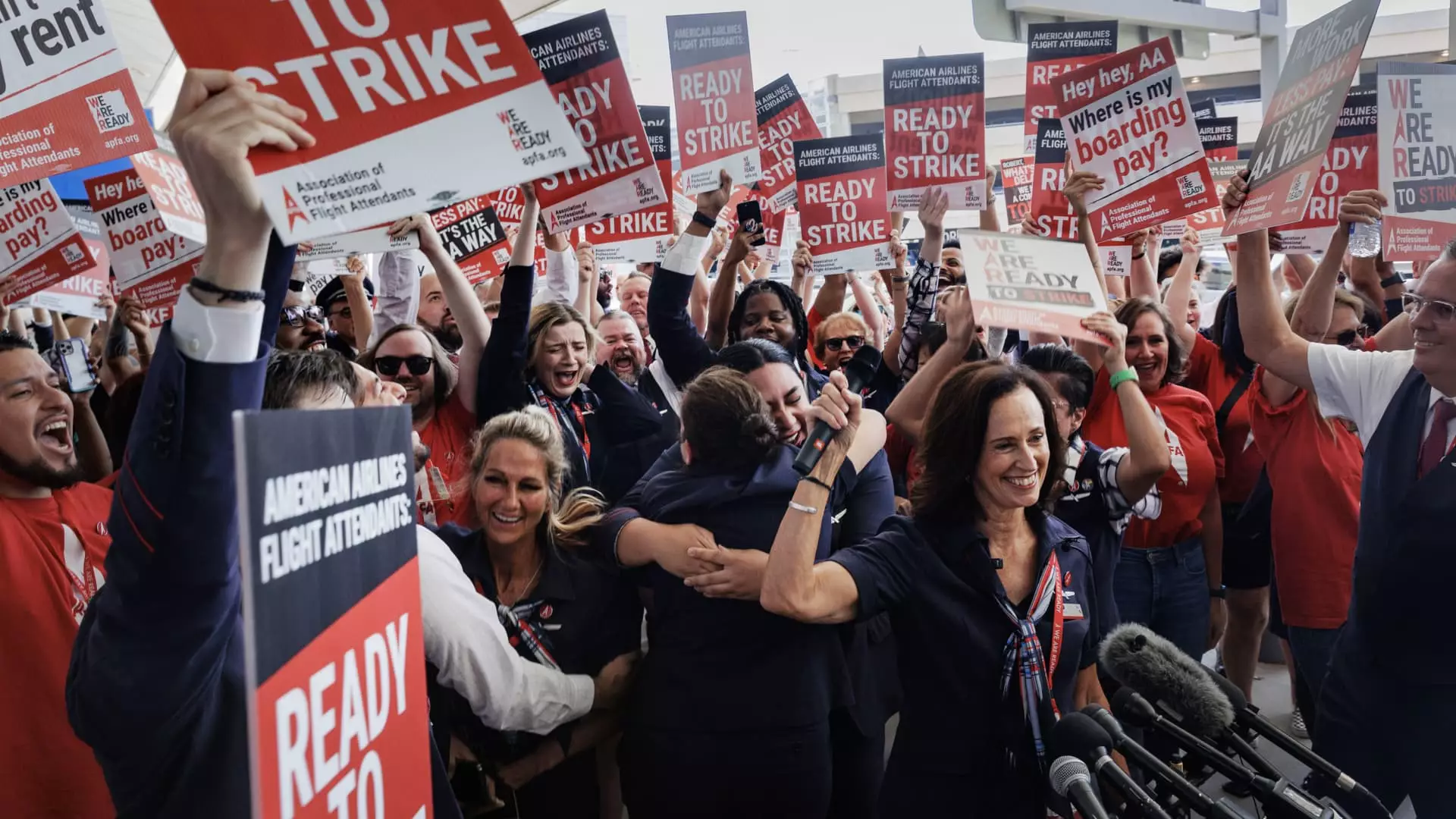In a significant development for labor relations within the airline industry, American Airlines flight attendants have overwhelmingly ratified a new five-year labor agreement, marking the end of protracted negotiations that had drawn considerable attention and concern. With an impressive 87% approval rate among the approximately 28,000 members represented by the Association of Professional Flight Attendants (APFA), this milestone is expected to bring immediate financial relief to the cabin crew. Effective from October, flight attendants will see salary increases of up to 20.5%, alongside substantial retroactive pay meant to compensate for the prolonged negotiations.
This contract is not just a financial boon for the flight attendants; it symbolizes a hard-won victory after a period characterized by significant unrest and uncertainty. Julie Hedrick, the APFA president, emphasized that the new contract serves as an essential acknowledgment of the hard work and dedication exhibited by flight attendants, particularly in light of the challenges posed by the COVID-19 pandemic which disrupted many ongoing discussions related to labor agreements.
The Context of Rigorous Negotiations
The context surrounding these negotiations cannot be understated. Transport Secretary Pete Buttigieg and Labor Secretary Julie Su actively participated in the discussions this past June, underscoring the federal government’s recognition of the airline sector’s labor dynamics. The stakes were particularly high for American Airlines, as the threat of a potential strike loomed large if no agreement was reached. The significance of this contract is further amplified by the growing trend among various industries—including automotive and entertainment—to secure higher wages and better working conditions through contract negotiations and, in some cases, strikes.
For American Airlines management, the approval of this contract brings a sense of urgency alleviated for now, as American CEO Robert Isom expressed his relief at reaching such a crucial agreement. Without it, leaders would have likely faced a more tumultuous situation involving public demonstrations or a strike that could have severely impacted operations.
The Bigger Picture: A Shift in Labor Dynamics
The successful negotiation results not only reflect the specific circumstances of American Airlines but also highlight a broader trend within various labor sectors striving for improved compensation and working conditions. Unquestionably, the COVID-19 pandemic has intensified pressure on workers to seek more favorable agreements. Airline workers, alongside employees in other sectors, are increasingly vocal about their need for change following hardships faced during the pandemic.
As American Airlines contracts are being ratified, other carrier negotiations are still underway. For instance, United Airlines is currently locked in talks with its flight attendants, while Alaska Airlines recently witnessed its cabin crew reject a tentative deal. The unpredictable nature of these negotiations coupled with the rising cost of living places significant stress on workers who advocate for better pay and conditions.
The ratification of the American Airlines flight attendants’ contract signifies not just a financial victory for the workers but also represents a potential turning point in the labor landscape across multiple industries. A renewed focus on comprehensive negotiations, empathy from management, and support from the government could very well pave the way for a more equitable atmosphere in the workplace.


Leave a Reply